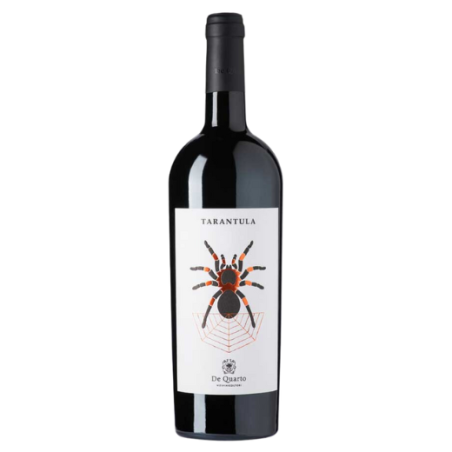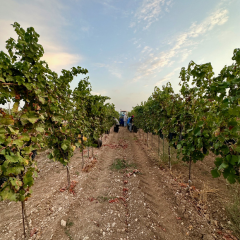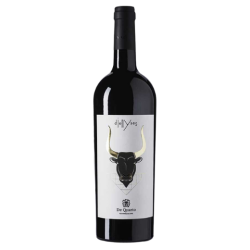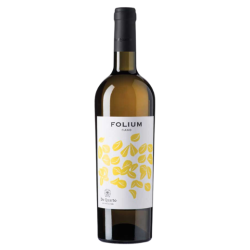- Natural

Tarantula, Negroamaro di Lizzano - 2018
Le nom et l’étiquette de ce Negroamaro di Lizzano sont une référence sans équivoque à la tarentule, cette araignée autrefois désignée comme responsable du tarentisme, une pathologie que des villages entiers s'attelaient à exorciser en s’adonnant à des danses frénétiques. Il s’agit d’un vin corpulent, aux arômes intenses de fruits mûrs. Accord parfait avec un filet de lapin farci aux herbes.
Delivery everywhere in Belgium, free for purchases over €130.
Gift wrapping option available in checkout.
Wine
For the degustation
Garde : 10 ans
14.0
16°-18
0.75
Natural
Number of bottles : 5.000
Hard cheese
Wine making
The vines are aged in "alberello pugliese". Organic viticulture. Natural wine, with long maceration and spontaneous fermentation at controlled temperature. Matured in stainless steel vats, then in bottle.
Earth
Ground : Limestone
Climate : Méditerranéen
 Red earth and limestone soils, perfectly exposed to the sun.
Red earth and limestone soils, perfectly exposed to the sun.
People
DE QUARTO

The Quarto family is very concerned by the Greek heritage of the Salento Peninsula in Puglia. Surrounded by the Adriatic Sea to the east and the Ionian Sea to the west, this region which forms the heel of the boot is also the sunniest and warmest in the country.
In their wine estate of Lizzano, the cradle of the Negroamaro grape, the De Quarto are involved in many cultural projects of extension of the Hellenic history of this part of Puglia. Their wines also bear names and nice labels, evocative of Greek culture.
Antonio and his daughter Roberta are driving the wine estate for which they chose organic viticulture and natural winemaking methods.




